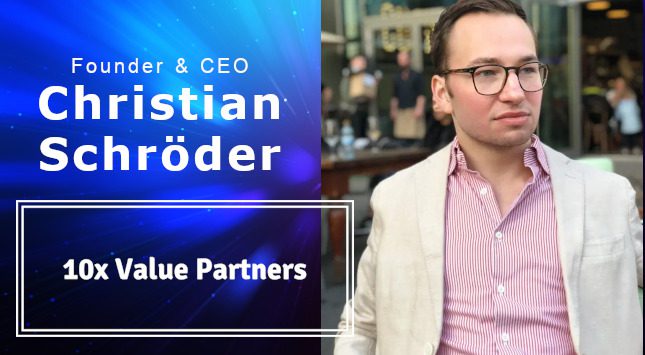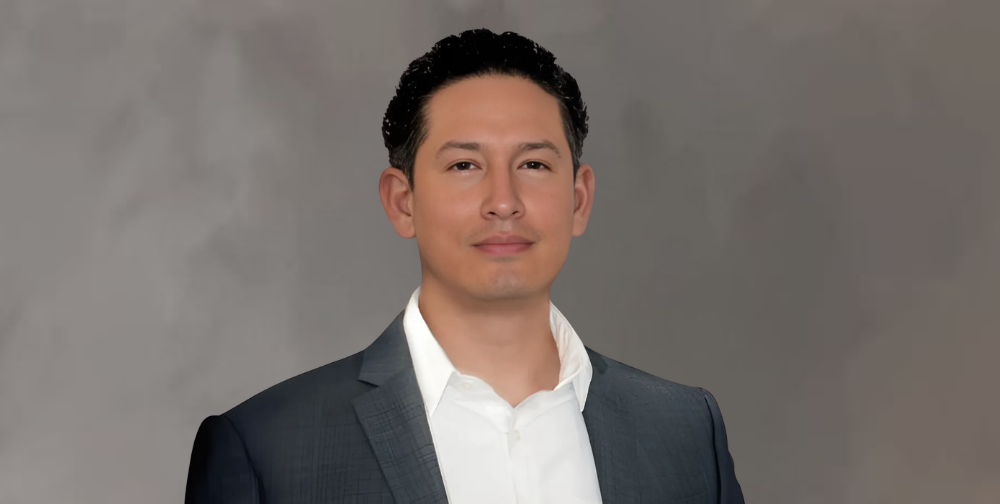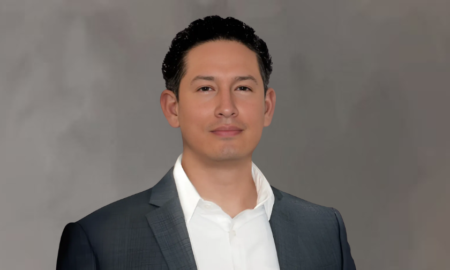Christian, you’ve already accomplished what many don’t manage to do in a lifetime, developing a company from 10 local to 400 pan-continental employees – and at the remarkably young age of 22. How? Was it focus or pure ambition or maybe something else that made you so enterprising?
First of all, I was privileged enough to grow up in an entrepreneurial family – my dad built up a software company in the 90s and my mum ran her own small company as well. Business was a regular topic of conversation at our dinner table, and I was able to get hands-on experience from age 14 working in our family businesses. I’d say this has certainly primed me to follow in my parents’ footsteps and become a successful entrepreneur at a young age.
I’d also say that I learned early in life that to get everything you want, everything you dream of, you need to put in the hard work that forms the backbone of almost every success. This has made me highly ambitious and serves as the mental foundation of my operating system. I’d describe myself as restless, always striving to improve how I do things and find the next great deal.
What have been the most noteworthy milestones in your career so far? What have they taught you, and what can they teach others?
I think when you look at milestones, you learn the most not from the actual results you get, but from how you got where you wanted to go. So far, I’ve managed to sell several of my investments, generating millions and achieving returns greater than 100,000% on some of my very early deals.
There are a couple of patterns I’ve recognised in many of my most successful projects: Firstly, it’s important to have a very fast rate of learning and improvement. I always say if you improve just 1% per day, personally or your company, your year-over-year improvement rate becomes greater than 1000%, or 10x. Doing this can be an uphill battle, but if you manage to pull it off, this is the formula to achieve all the success in the world you are striving for.
A second aspect to consider is the mix of labour and capital. There’s an abundance of capital in this world, so to stand out and to create handsome returns, you need to combine your capital with your entrepreneurial creativity and energy. Look at most billionaires in the world and you’ll find that they first started out by building their businesses before shifting towards a more passive, asset management strategy once they had established themselves and their track record.
What business savvy would you pass on to the budding young entrepreneur who wants to follow in your footsteps and launch an enterprise?
I think the first and foremost is having a well anchored foundation of hard skills. You’ll need these to succeed later in life. The early years of your career shouldn’t be focused on making the most cash you can put your hands on, but on maximising skills that will help you later down the line. For example, I was fortunate enough to benefit from the tutelage of German billionaire investor Oliver Samwer, four years that taught me much of what I now apply day to day.
Another point would be the concept that you need to train your mind for curiosity and the ability to learn new things. Darwinism has taught us that those who survive are not necessarily the strongest, but the most resilient and adaptable. Dinosaurs are dead, insects have survived. Today’s world is changing at a rapid and accelerating pace. We need to keep learning or die.
Finally, I’d say that you need to understand the value of networks. More than 95% of the money I make is generated through my network, and I like to say that your network is your net worth. This works by providing and showing value first. People want to work with me because they know they will make a quite considerable amount of money if they do so. Once you’ve truly grasped this concept, you can become a magnet for money and success.
What is, in your eyes, successful investing?
Successful investing means making substantial amounts of money without gambling, but rather with a repeatable, sustainable investment approach. Right now, all markets – equity, commodities, crypto, etc. – are on the upswing, and it can be easy to look like an investment genius. But in order to achieve truly sustainable, long-term returns, as for example Warren Buffet or Ray Dalio have done, you need to have a rigorous, process-oriented investment approach. That’s why we’ve built a strong investment team at our firm to support our data-driven due diligence.
On the other hand, sometimes it’s worth taking a gamble if the risk you take is calculated, and you’re aware of the fact that what you’re doing is actually a gamble. If you asked me what I personally regret, I’d say not investing earlier in crypto and other high-risk opportunities. But I’ve learned from this. I’ve created a small $100k gambling fund that I use to invest in super high-risk, high-reward opportunities, while having some degree of diversification.
Where do you see the financial market going? What’s coming our way in the next few years?
On a macro level, we’re currently in the longest bull run in history, and there’s a lot of uncertainty about what’s going to happen. There are two major risks at the moment. One is rising interest rates, which would lead to a correction of valuations on debt and equity markets. The other is rising inflation, which you can also expect to lead to a negative impact on security prices. As regards equity markets, both events, should they crop up, would lead to a compression of multiples.
From my point of view, the best strategy at present is to invest in high-growth companies, and to an extent, high-growth industries and countries. With a sufficiently long-term investment horizon, and if companies are growing quickly, you’ll come out swimming even if multiples get compressed. Just after waiting a couple of years more, and you’ll see the return you were hoping for. At the moment, I’d steer clear of fixed income investments and low-growth industries. These will be most negatively affected by rising interest rates and inflation.
Many shy away from investing because of the risks involved. On the other hand, they’re attracted by the real possibility of making a tidy profit. How can we counteract this dilemma in people’s attitude and make the prospect of investing less daunting, more attractive?
The only guaranteed way to live in relative life-long poverty is to not be investing at all.
I’d recommend people start investing small – only what they can afford to lose. Start getting their feet wet, so to speak. There are now many great apps like Robinhood and Trade Republic that have dramatically lowered the entry barriers to becoming an investor.
Another way to lower the perceived risk of investing is by investing in yourself and in your own business. Then you can use your time and energy to protect your investment and dramatically increase the likelihood of success. For many of my businesses, I see the risk of failing to be actually quite low, as I trust in myself and know that I could always jump in and help a business get back on track if it finds itself in dire straits.
The corona pandemic hit the working world hard – many saw their source of income evaporate overnight. How did you weather it? Was your business also hit hard?
I think this brings us back to my earlier point on being adaptable to weathering the storms of life.
When the Covid pandemic hit, I was working on two real estate hospitality deals that would have earned me several hundreds of thousands in commissions. The prospect of those deals evaporated over night. Also, some of my businesses, for example in the advertising and mobility space, took a hit from the pandemic and the subsequent decrease in consumer demand.
What we did was act quickly and decisively. We cut costs and also got creative in building new revenue streams to supplement some of the lost revenue in the short-term. Here’s an example: we started a business selling masks and hand sanitiser and advertised our products using the idle advertising assets that we had already owned. But overall, we managed to emerge from the Covid pandemic stronger. I’d say Covid proved to be a positive catalyst for the digital economy overall, especially looking at market segments like e-commerce and online grocery delivery.
Surely you experience a great deal of pressure, an almost inevitable by-product of major success. How do you deal with it? Have you developed any personal method to cope with demanding or challenging situations?
I think I’m lucky to have a personality that can cope very well with pressure of any kind. My life is like a roller coaster; I’ve always got fires to fight somewhere. One day you think it’s nothing but smooth sailing, and your businesses are virtually printing money, just to get hit with a sucker punch the very next day. I think this constant up-and-down helps you to deal with pressure better over time.
Another tool I use and which I’m very grateful for is my strong network of friends and advisors. These people can and do help me in particularly challenging situations. My closest friends and I have a set-up similar to a mastermind group, where we can talk openly about the biggest hurdles we’re facing and use our collective mind power to overcome them. This is of incalculable value to me. If you don’t have a similar set-up, I wholeheartedly recommend you see about creating one. Here, you can’t lose.
For more information, visit the website: 10xvaluepartners.com































